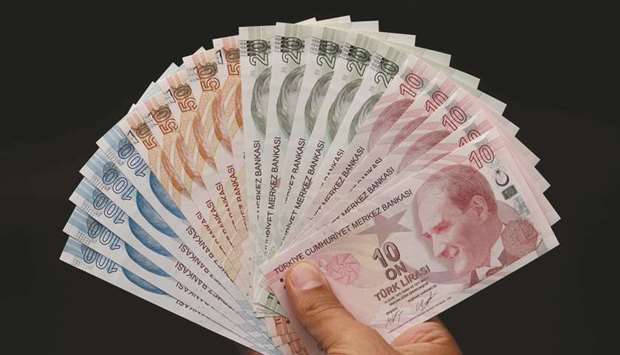Turkey’s central bank has said it would stick with a 5% inflation target, a deeply ambitious goal after this year’s currency crisis sent the inflation rate soaring to a 15-year high of 25%.
The bank said on Wednesday it would change its monetary policy stance if exchange rate moves had a lasting affect on price stability, helping the lira gain nearly 1% against the dollar.
It also stressed co-ordination with government policy in fighting inflation, saying its first objective was to bring down inflation to single digits, and then gradually reduce it and stabilise it at around 5%.
Inflation remains one of the most pressing problems for Turkey’s economy, after it weathered a currency crisis earlier this year.
Investor concerns about the bank’s ability to rein in prices — and a diplomatic rift with the US — sent the lira tumbling as much as 47%.
It has since recovered somewhat but is still down some 30%, year-to-date.
“If exchange rate movements permanently affect price stability, the CBRT will change its monetary policy stance and give the necessary reaction,” it said in its 2019 monetary and exchange rate policy document, released on Wednesday. “The central bank’s stress on a monetary policy focused on inflation seriously reduced selling pressure on the lira, indeed reversing it,” said a treasury desk trader at one bank, adding an early rate cut had, in recent days, begun to be priced in.
“This text does not contain any comments pointing towards the December 3 MPC (monetary policy committee meeting) but it is important in showing it may make a similar assessment at the MPC stressing inflation,” the trader said.
The currency sell-off has driven up the prices, and has deepened worries about the broader impact on the real economy and banks.
Inflation was at 21.6% last month, near its highest in a decade and a half.
“The inflation target has been kept at 5% as per the agreement reached with the government,” the bank said.
“Fiscal discipline is essential in fighting inflation. The co-ordination between monetary policy and fiscal policy is therefore crucial with respect to disinflation and macroeconomic rebalancing,” the bank said.

Turkish lira banknotes are seen in this picture illustration in Istanbul. Inflation remains one of the most pressing problems for Turkey’s economy, after it weathered a currency crisis earlier this year.
